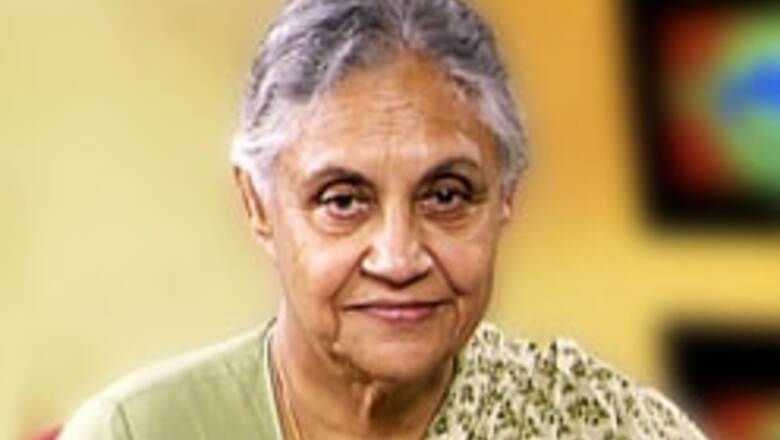
views
New Delhi: Delhi Chief Minister Sheila Dikshit, still reeling from the court-ordered closure of businesses illegally functioning from residential areas, declared that the national Capital would one day surpass Beijing as a world-class city.
Addressing an interactive session on "Meeting New Expectations" at the India Economic Summit, she admitted to "not being able to manage optimally" in dealing with some of the city's "archaic problems".
And, even as Dikshit spoke of the "success story" of power sector reforms, she noted with regret that a similar scheme for the water sector had to be dumped due to objections to the World Bank funding it.
She also pointed to the need for reforms in the areas of administration, transportation, health, education and environment, saying: "We have got it all. What we now need is quicker and better management of resources."
The chief minister's Beijing remark came in response to a question on why Delhi could not match the Chinese capital when Mumbai aspired to overtake Shanghai.
"Why should we become like Beijing? I want a day to come when people from there come here and want to know why their Capital is not ours," Dikshit declared to applause.
As for the Supreme Court-ordered drive, she ascribed this as "one of the grey areas" in the relations between the city and Central Government.
"It was a traumatic experience. The fault is everybody's but there is no accountability, and therefore, it is not possible to pinpoint blame," the chief minister maintained.
As for the power sector reforms, she termed this a "success story" largely because electricity thefts had reduced from 52 per cent to 37 per cent, which would be further brought down to 27 per cent. At the same time, the experience of the past four-and-a-half years had revealed that there was "suspicion" all round against privatisation.
"The private sector is suspicious of the Government. The Government is suspicious of the private sector. The public is suspicious of both and feels the private sector is only out to make money," Dikshit contended, adding that the answer lay in winning the confidence of the people.
"If you want the people to adapt to a new culture then they have to be given the confidence this is good for them. Narrowing this gap is the first step to take," she added.
Since this was not done in the case of water reforms, civil society groups and the media had created the impression that the poor would suffer the most if the World Bank-suggested model was adopted.
According to Dikshit, even as her government struggled with "archaic problems, some of which have been solved, even as new ones have emerged", the city had to cope with some half-a-million people who came to the city every day and then returned home, spending in the process some four hours on travel alone.
When it was suggested that the Delhi government work with its counterparts in the surrounding states to improve the transportation network, she agreed that this was an area that needed to be addressed.



















Comments
0 comment